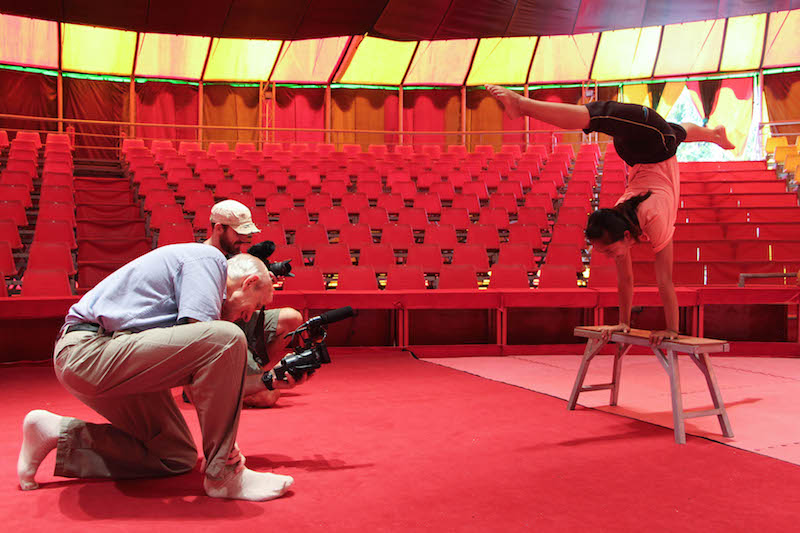Breathtaking glimpses of Cambodia’s rolling rice fields, forests, shorelines, temples and palaces fill the opening sequence of the documentary “Angkor Awakens: A Portrait of Cambodia”—an attempt to encapsulate the country’s vast scenery in one short sweep.
—Film Review—
In a similar way, the film tries to wrap the entirety of Cambodia’s complex history into 125 minutes.

In making the film, Robert Lieberman, a physics professor at New York’s Cornell University and an amateur filmmaker, conducted and filmed interviews with more than 140 people over the course of four years.
Once underway, the film— showing for three days this week in Phnom Penh—quickly zooms in on the devastating Khmer Rouge regime of the 1970s and the reluctance among its survivors to remember the brutality they lived through.
“It’s very hard to talk about my life during the Khmer Rouge time,” Phan Hannah, a senior lecturer in Khmer studies at Cornell, says in the film. “It made me very scared and I, in fact, I did not want to talk about it at all because it brought back all the memories.”
Regime survivors tell stories of murdered loved ones, of escaping death and of the post-traumatic stress that returns every time they reflect on what happened. Children and young adults born after the regime’s fall also explain what they know of their elders’ trials. They are concerned that the post-Khmer Rouge generation, which now makes up the majority of the Cambodian population, are forgetting the history.
“Many scholars back in the Khmer Rouge day were killed, were murdered. And we still fear that if you are too highly educated, then you can somehow be hurt,” a student named Men Sonita says in the film. “We still have that mindset.”
As new generations move on from periods of war and killings, they risk history repeating itself, the interviewees worry. But there is also hope and curiosity about what a future free of the weight of the past may bring.
Such curiosity even extends to Prime Minister Hun Sen, who is interviewed by the filmmaker in New York.
“Who will be after Hun Sen? What is the post-Hun Sen era?” the premier asks. “That is the question among the Cambodian people and the Cambodian People’s Party. It is my own thought too.”
Mr. Lieberman’s use of Khmer shadow puppets to illustrate the country’s history brings a unique color to the documentary without trivializing the gravity of the story. The detailed historical account provides foreign audiences ample context for later events under Mr. Hun Sen’s leadership.
But Mr. Lieberman’s decision to work alone on the film, following his work producing another documentary on Burma in 2012, accounts for perhaps its greatest shortcomings: His videography and audio recordings range from well-crafted to clumsy, and his interlocutors are limited to a narrow demographic.
Aside from the short clips of commentary from the premier—in Khmer with subtitles—Mr. Lieberman focuses his lens on Cambodians and scholars fluent in English. (Opposition leader Sam Rainsy also makes an appearance.)
One is left wondering about the huge swath of voices left out: the uneducated Khmer Rouge survivors and youth growing up in a world without English classes, people who are mentioned in the film, but remain voiceless.
Clearly created for an international audience, “Angkor Awakens” provides an engaging narrative of Pol Pot’s devastating regime and how Cambodia is grappling with it today. It would have been more effective, however, if its embrace of the vast range of Cambodia’s landscapes had been extended to its people.
The film will be screened at Meta House at 7 p.m. from Tuesday through Thursday.



